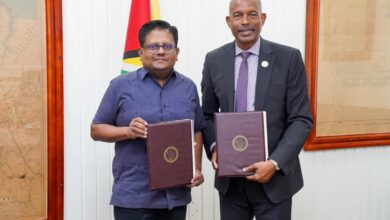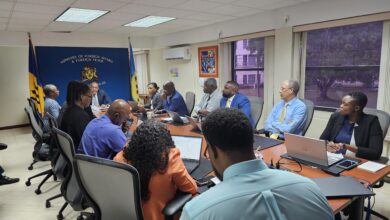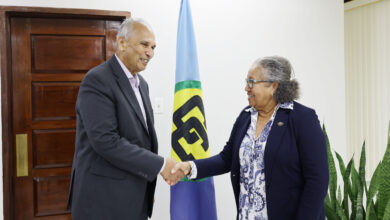Regional Governments and their international partners are moving to establish a comprehensive development programme in agriculture for the Caribbean Community (CARICOM). This comes against the background of their recognition that the sector continues to play a critical role in the economies of CARICOM Member States. Government Ministers representing a range of portfolios which impact on trade and development in the Region are convening the 17th meeting of the CARICOM Council for Trade and Economic Development (COTED) in Trinidad and Tobago 16-17 June 2004. They are expected to have extensive discussions and arrive at key decisions aimed at reviving the Region's agriculture sector.
In keeping with the goal for the creation of a Regional Transformation Programme for Agriculture, the COTED is expected to consider reports from the Caribbean Development Bank (CDB) as well as the Food and Agricultural Organisation (FAO) of the United Nations. The reports highlight the overall decline in manufacturing and agriculture output and propose several initiatives to improve the Region's ailing agriculture sector. The measures include a comprehensive agriculture development programme for the Region, the rehabilitation of the Caribbean Agriculture Research Development Institute (CARDI), and the establishment of the Caribbean Agriculture Health and Food Safety Agency (CAHFSA).
The Trade and Economic Development Council will be invited to urge Member States to support the FAO projects by meeting their obligations to that agency on a regular and timely basis as well as to support collaborative efforts between the CARICOM Secretariat and FAO.
In the area of sustainable development in the Region, the issue of control of harmful species of plants and animals in the Caribbean will be among the highlights of the COTED meeting. The Region's heavy dependence on the export of fresh agricultural produce and the Community's increased vulnerability to food export barriers from other countries affected by these species will also be discussed.
In the context of its endemic plant and animal life being a major asset of the Caribbean and an increasingly important source of tourist attraction, the CARICOM Ministers will discuss the Region's lack of technical and financial resources to eradicate or protect against new and invasive species and make recommendations to remedy the situation.
It is expected that COTED Ministers will also consider and support proposals for a regional policy to control invasive species. This policy will complement the initiative of the Caribbean Food Crop Society and its US-based collaborators to address this costly problem. In this context some key decisions are expected to be made by the COTED. The Council is expected, for example, to seek greater levels of support from the Global Environment Facility (GEF), which forms a major part of regional projects on invasive species, and geared towards helping to enhance the capacity at the national level to plan and manage ecosystems on a sustainable basis.
The GEF initiative focuses primarily on improvement in freshwater basin-coastal area management of Caribbean Small Island Developing States, (SIDS). It is anticipated that national agencies will be invited to work with the project to provide necessary action for the Implementation Unit to ensure speedy and effective implementation.





